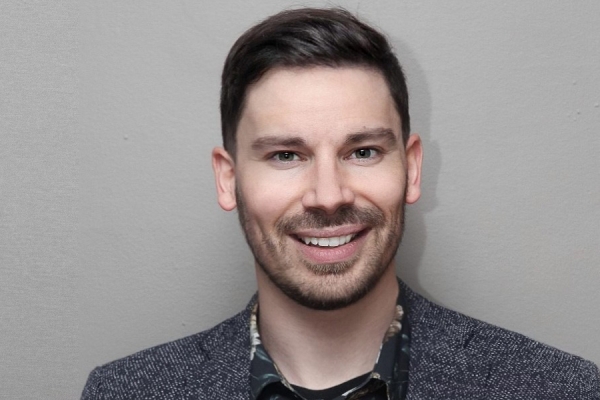 Nicholas Hrynyk examines gay ableist culture in an article published recently in Disability Studies Quarterly.
Nicholas Hrynyk examines gay ableist culture in an article published recently in Disability Studies Quarterly.
An article published in the Spring 2021 issue of Disability Studies Quarterly and an interview on the Disability History Association’s podcast explore the research interests of UWindsor professor Nicholas Hrynyk, which include queer history, disability studies, feminist and gender studies, critical race studies, and visual culture.
The article — entitled “’No Sorrow, No Pity’: Intersections of Disability, HIV/AIDS, and Gay Male Masculinity in the 1980s” — examines narratives of disease and disability in Canada’s gay and lesbian newspaper, The Body Politic (1971-87), in order to demonstrate how gay male masculinity developed within a gay ableist culture deeply affected by HIV/AIDS.
“In 1980, Gerald Hannon of The Body Politic comes out with this article called ‘No Sorrow, No Pity,’ which is now eponymously the name of my article,” says Dr. Hrynyk. “In it he speaks about the marginalization of people with disabilities in the gay and lesbian community, particularly in Toronto.”
In the 1980 article, Hannon laid out a wide set of conclusions about what had contributed to the marginalization of persons with a disability. But what Hrynyk appreciated was that he also interviewed those with a disability to ask them about their experiences.
At that time, two seemingly separate issues of disability and disease (HIV/AIDS) were woven together.
“As a result, two seemingly different discussions of disability and disease in The Body Politic intersected at the site of the gay male body,” Hrynyk says. “The perceptions of bodily ‘failure’ transferred from the disabled body onto the diseased body during the formative years of the HIV/AIDS epidemic through imagery and text.”
Hrynyk is an adjunct assistant professor in Women’s and Gender Studies at both the University of Windsor and Carleton University, and a Social Sciences and Humanities Research Council (SSHRC) postdoctoral fellow in the Department of Historical Studies at the University of Toronto.
